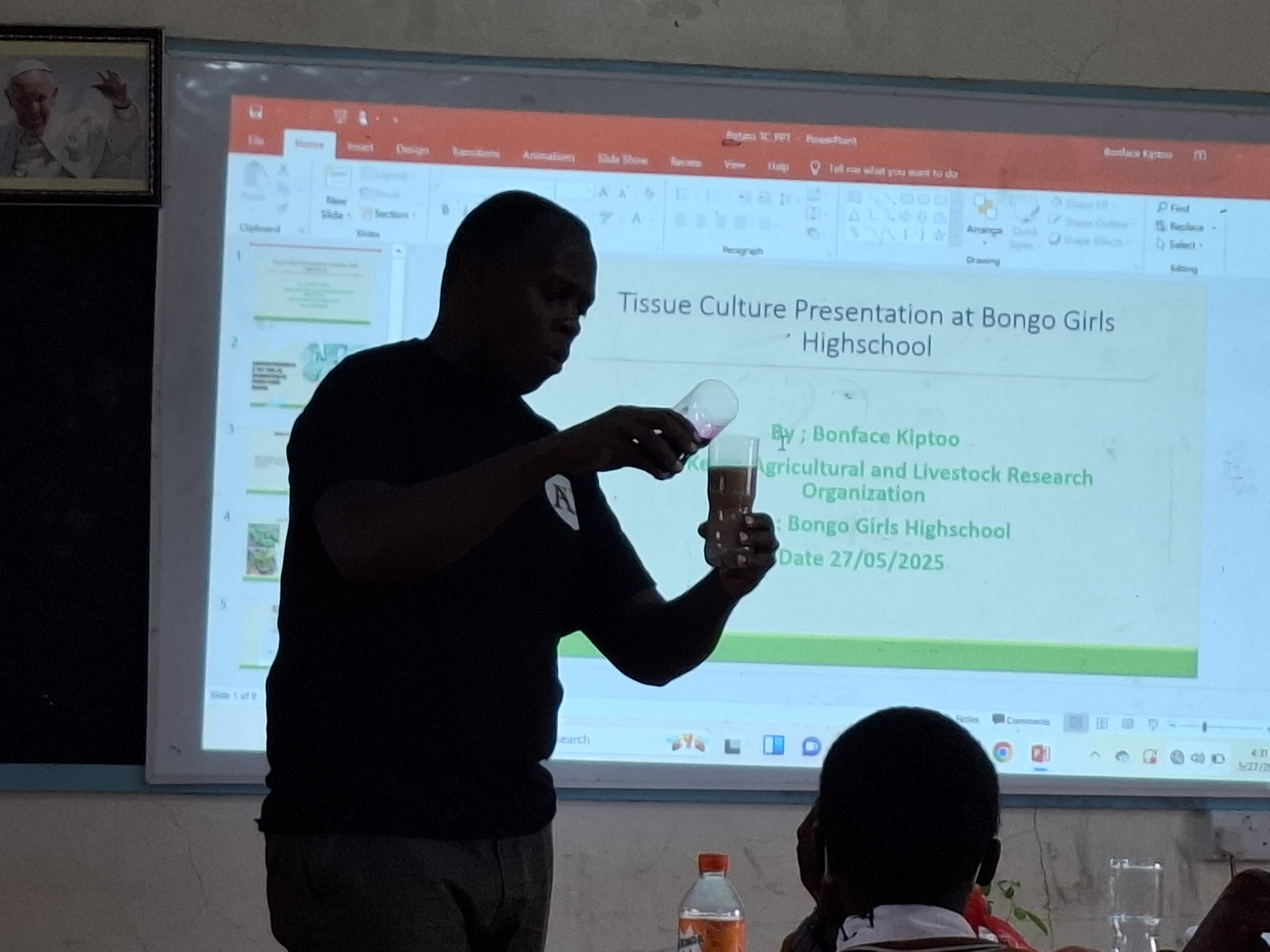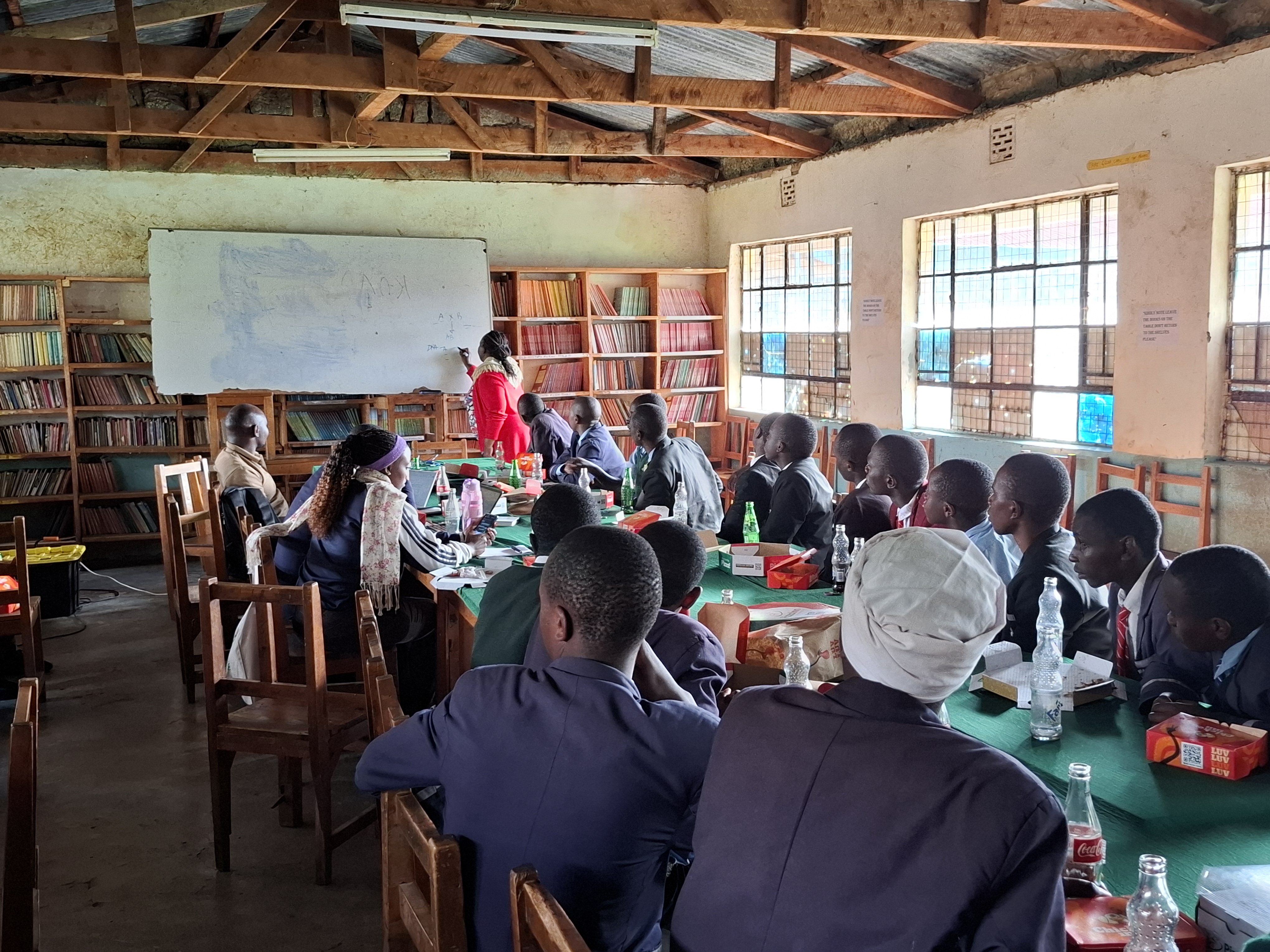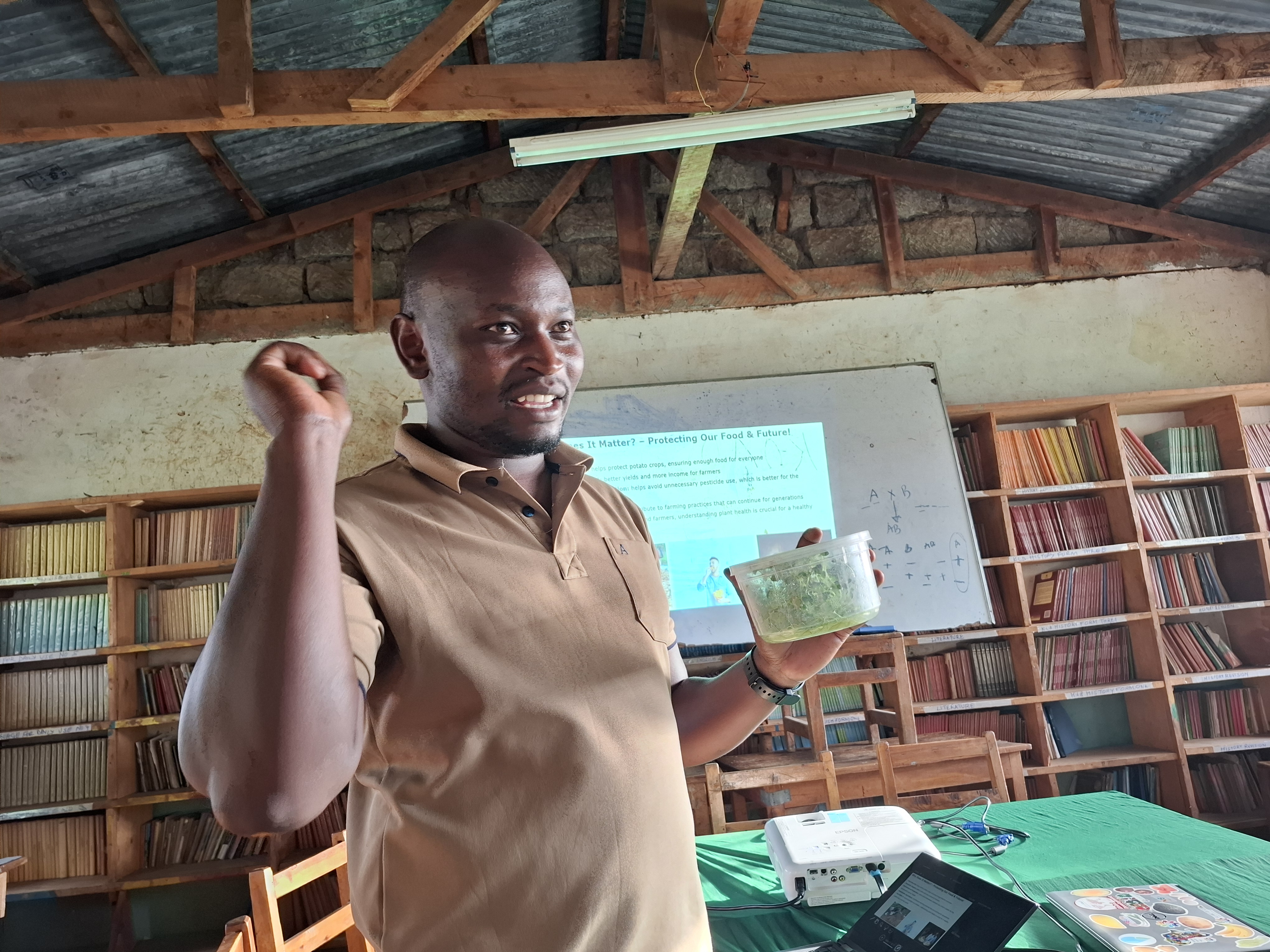By Verenardo Meeme
August 14, 2025
(Nyandarua County, Kenya) As global attention turns to youth empowerment, a pioneering initiative in Kenya’s central and Rift Valley regions is demonstrating how hands-on agricultural science clubs are seeding future food security.
AATF’s Open Forum on Agricultural Biotechnology (OFAB) Project has supported the SciFun initiative – spearheaded by Kenneth Monjero, the team leader of the Kenya Agricultural and Livestock Research Organization’s (KALRO’s) Science Centre, to ignite passion for agriculture and related disciplines among high school students in Nyandarua, Kiambu, and Nakuru counties through immersive, experiential learning.
Beyond the textbook: Science in the soil
Moving beyond theoretical classroom lessons, the initiative plunges students directly into the potato value chain. Recent intensive sessions in May 2025 saw 120 students from six secondary schools engage in monitoring the growth of their second-season potato crops. The core of the initiative lies in direct mentorship, as students interacted with leading scientists during farm visits and attended focused workshops.

“Students gained practical insights into how scientific breeding methods are used to improve crop yields and ensure food security,” Monjero explained.
Dr. Susan Otieno, head of KALRO’s Potato Breeding Section- Tigoni, guided students at Tumaini Integrated School through the intricate “art and science” of potato breeding and variety development. Participants delved into genetic principles, compared conventional breeding with modern marker-assisted breeding (MAB), and even conducted group exercises to select traits for ideal potato varieties.

Simultaneously, KALRO’s Bonface Kiptoo led sessions on potato disease diagnostics, equipping learners to identify fungal, bacterial, viral, and nematode threats using real images and symptoms that plants exhibit. They explored diagnostic technologies like microscopy and Polymerase Chain Reaction (PCR) and, crucially, learned Integrated Pest Management strategies linking plant health directly to productivity and market success.
Growing potato seed in a test tube
Kiptoo demystified the biotechnology tool of tissue culture, explaining the process from collecting plant tissue to hardening seedlings in greenhouses in preparation for field planting. Students saw firsthand how sterile lab conditions produce disease-free seed potatoes, a critical technology for improving yields. The session clearly showed how modern techniques support robust seed systems.

Bridging the gap: Connecting youth and innovation
Vitumbiko Chinoko, project manager at OFAB, said the initiative – and particularly OFAB’s support – is aimed at introducing learners to agricultural biotechnology and other emerging technologies at an early age. These, he said, have proven effective in addressing persistent agricultural challenges such as pests and diseases, while also reducing the use of chemicals.
He noted that biotechnology continues to face widespread misinformation and disinformation, which must be countered with accurate information. “We want young people to be informed early, to build awareness of biotechnology and other emerging technologies in agriculture,” he said.
‘’For Africa to make use of modern agricultural innovations, such as biotechnology, it is vital to have a critical mass of researchers who can help make evidence-based decisions a reality’’, he added.
“It is, therefore, important to prepare young scholars – the next generation of scientists and researchers – from early on, so that they can make the right career decisions as they transition to university. They need to know the options that exist in science and technology for them to pursue in higher education,” Vitumbiko said.
Tangible impact
Through this partnership with OFAB, the experiential approach helped students appreciate the broader context of science-driven agriculture, with some saying they were inspired to consider future roles in agricultural innovation. Critically, the direct engagement significantly enriched the learning experience and strengthened the link between science, technology, and agriculture for young learners.
The initiative is creating ripple effects beyond the classroom. Notably, students engaged in the project expressed interest in agriculture and hoped to share their new knowledge with their parents and others, fostering community-wide agricultural awareness.
Eunice Mutimi, a student from Kambala Girls High School in Nakuru County, speaks highly of the project: “Now, when we see a pest on the farm, we want to know the cause and the immediate and long-term solutions to control its spread. Before we were introduced to this project, we never would have bothered.”
She is keen to pursue a degree in crop science after high school. “I want to become a researcher and help build knowledge for solving challenges that affect our staple foods, especially potatoes, which are an important food and cash crop here.”
Joshua Otieno from Njabini Secondary School in Nyandarua County shares Mutimi’s enthusiasm for the project and her interest in researching potatoes, specifically the diseases that are affecting Kenyan potato crops. He wants to study molecular biology at university.
Cultivating future harvests By directly connecting students with scientists and real-world agricultural systems, the initiative fosters curiosity, builds practical skills, and opens minds to careers in agricultural science, biotechnology, and food systems.
The initiative was strengthened not only by OFAB but also by the Global Biotech Potato Partnership (GBPP), a consortium bringing together Michigan State University (MSU), KALRO, AATF and the International Potato Centre, that contributed to the testing, and deployment of late blight disease resistant potato, developed through modern biotechnology. Late blight disease is the most devastating constraint in potao production and can lead to total crop failure.






















































































